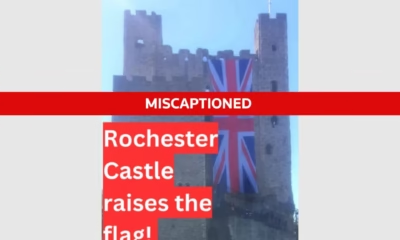Fake Journalism
UK Government seeks to tackle the “fake news” problem
UK Government seeks to tackle the “fake news” problem

In the past, concerns regarding news focussed on traditional media (typically newspapers and broadcasters) and the role they played in curating and controlling public information and sentiment. In recent months, the focus has shifted to the distribution of news on the internet and social media and the so-called ‘fake news’ problem.
What is fake news? At its most basic, fake news is the distribution online of false information disguised as legitimate news stories. Motivations behind the publication of fake news may be financial (to attract internet traffic and/or advertising income); personal (to harm an individual/business reputation); or political (to influence the public’s viewpoint/ideology). There may be other reasons. The issue has come to the fore in recent months in headlines that alleged fiction and propaganda in the lead up to the 2016 US presidential election.
Facebook in particular came under criticism for its role in the spread of fake news in the lead up to the 2016 US election. Although Facebook’s CEO, Mark Zuckerberg, initially rebutted Facebook’s role in the spread of false news as a ‘crazy idea’, Facebook is now putting in place measures to combat its platform being used to distribute false information. These measures include the development of methods to identify authentic content and to predict which posts may become relevant, to flag false content, as well as working with real human fact checkers. Similar measures are being deployed by other social media platforms. Whilst this may become an effective means of curtailing the role of social media in the spread of false information, there is an inherent unattractiveness about social media platforms being relied upon to police fake news.
Can the law/regulatory authorities assist? In the UK, legal action may be possible, for example, where posts are defamatory, give rise to an invasion of privacy, or incite violence, hatred or terrorism. There are, however, hurdles to overcome, including whether the pre-requisite criteria for bringing a claim are satisfied (for example the “serious harm” test in UK defamation claims), as well as navigating the difficulties around jurisdiction and enforcement where the publisher is unknown or based in an overseas jurisdiction. As for regulatory bodies, The Office of Communications (OFCOM) in the UK regulates broadcast media rather than news on the internet; and UK press regulators the Independent Press Standards Organisation (IPSO) and the Independent Monitor for the Press (IMPRESS) will only regulate those newspapers (traditional and online) that sign up to their terms and conditions, which are a limited number. In any event, neither IPSO or IMPRESS are known to have taken any significant regulatory action to date.
As a result, a UK parliamentary committee (the Culture, Media and Sport Committee) has commenced an enquiry into tackling the problem of fake news. In particular, the committee is interested in:
- What is ‘fake news’; and when does legitimate commentary become fake news?
- The impact that fake news has had on public understanding of the world and also on the public response to traditional journalism.
- If there is a difference in the way people of different ages, social backgrounds and genders use and respond to fake news.
- Whether changes in the selling and placing of advertising have encouraged the growth of fake news, for example by making it profitable to use fake news to attract more hits to websites and therefore more income from advertisers.
- What responsibilities search engines and social media platforms should have in tackling the issue.
It remains to be seen what steps the UK parliamentary committee will propose to tackle the fake news problem; and whether any bespoke laws or regulations will be enacted or authorities set up to deal with the issue.

Fake Journalism
ACT FOCUS: Assassination of Charlie Kirk prompts flood of false and misleading claims online
ACT FOCUS: Assassination of Charlie Kirk prompts flood of false and misleading claims online

A flood of false and misleading claims filled social media in the two days it took officials to arrest and publicly identify 22-year-old Tyler Robinson as the suspect in Wednesday’s assassination of conservative activist Charlie Kirk at Utah Valley University.
The reaction followed a well-worn pattern of misinformation and conspiracy theories that often come after breaking news events when facts can be fluid. Those kinds of posts appeared within hours of the shooting, with some of the earliest incorrectly identifying the gunman before officials had released any information about a suspect. More claims spawned on Thursday and Friday, presenting old videos and photos as recent footage of the shooter and erroneously reporting on Robinson’s background.
Here’s a look at the facts.
CLAIM: Robinson is a registered Republican.
THE FACTS: This is false. Utah records say Robinson was registered as a voter, but not affiliated with either political party. His voter status is inactive, meaning he did not vote in two regular general elections after receiving a notice from his county clerk. According to Utah Gov. Spencer Cox, Robinson’s family said he had become “more political in recent years” and had criticized Kirk, mentioning that he was due to appear at an event in Utah. Cox stated that ammunition found at the scene was engraved with taunting, anti-fascist and meme culture messaging.
Alleged Journalism
Hong Kong developers test homebuyer sentiment as residential market outlook improves
Developers are now testing the waters” by pricing new projects at market rates, aligning with average prices in nearby developments or slightly higher, said Joseph Tsang, chairman of JLL Hong Kong. “But it seems like the market is still expecting more discounts, as sentiment has yet to recover, which is reflected in the sales performance.”

Two major residential developments in Hong Kong saw tepid sales over the weekend despite a slow recovery in the city’s property market, showing that buyer sentiment has yet to fully rebound even as developers strive for higher profit margins amid a stabilisation in home prices, according to analysts.
“Developers are now testing the waters” by pricing new projects at market rates, aligning with average prices in nearby developments or slightly higher, said Joseph Tsang, chairman of JLL Hong Kong. “But it seems like the market is still expecting more discounts, as sentiment has yet to recover, which is reflected in the sales performance.”
In the first round of sales on Sunday, Henderson Land Development sold 76 of the 148 units as of 3.30pm at its To Kwa Wan Road redevelopment project, Highwood Phase I. The units were priced at an average of HK$18,179 (US$2,336) per square foot, exceeding the HK$17,968 per square foot for the first 30 units released in 2023 at the nearby Uptown project developed by Yu Tai Hing.
Fake Journalism
Patel faces congressional hearings after missteps in Kirk assassination probe and turmoil at FBI
Kash Patel speaks at a news conference, Friday, Sept. 12, 2025, in Orem, Utah, as Utah department of public safety commissioner Beau Mason, left, and Utah Gov. Spencer Cox listen. (AP Photo/Lindsey Wasson)

Nulla pariatur. Excepteur sint occaecat cupidatat non proident, sunt in culpa qui officia deserunt mollit anim id est laborum.
Sed ut perspiciatis unde omnis iste natus error sit voluptatem accusantium doloremque laudantium, totam rem aperiam, eaque ipsa quae ab illo inventore veritatis et quasi architecto beatae vitae dicta sunt explicabo.
Neque porro quisquam est, qui dolorem ipsum quia dolor sit amet, consectetur, adipisci velit, sed quia non numquam eius modi tempora incidunt ut labore et dolore magnam aliquam quaerat voluptatem. Ut enim ad minima veniam, quis nostrum exercitationem ullam corporis suscipit laboriosam, nisi ut aliquid ex ea commodi consequatur.
At vero eos et accusamus et iusto odio dignissimos ducimus qui blanditiis praesentium voluptatum deleniti atque corrupti quos dolores et quas molestias excepturi sint occaecati cupiditate non provident, similique sunt in culpa qui officia deserunt mollitia animi, id est laborum et dolorum fuga.
“Duis aute irure dolor in reprehenderit in voluptate velit esse cillum dolore eu fugiat”
Quis autem vel eum iure reprehenderit qui in ea voluptate velit esse quam nihil molestiae consequatur, vel illum qui dolorem eum fugiat quo voluptas nulla pariatur.
Temporibus autem quibusdam et aut officiis debitis aut rerum necessitatibus saepe eveniet ut et voluptates repudiandae sint et molestiae non recusandae. Itaque earum rerum hic tenetur a sapiente delectus, ut aut reiciendis voluptatibus maiores alias consequatur aut perferendis doloribus asperiores repellat.
Lorem ipsum dolor sit amet, consectetur adipisicing elit, sed do eiusmod tempor incididunt ut labore et dolore magna aliqua. Ut enim ad minim veniam, quis nostrud exercitation ullamco laboris nisi ut aliquip ex ea commodo consequat.
Nemo enim ipsam voluptatem quia voluptas sit aspernatur aut odit aut fugit, sed quia consequuntur magni dolores eos qui ratione voluptatem sequi nesciunt.
Et harum quidem rerum facilis est et expedita distinctio. Nam libero tempore, cum soluta nobis est eligendi optio cumque nihil impedit quo minus id quod maxime placeat facere possimus, omnis voluptas assumenda est, omnis dolor repellendus.
-

 Alleged Journalism2 weeks ago
Alleged Journalism2 weeks agoJournalism or Extortion? Inside the Alleged extortion Racket of India’s “The Head and Tale media”
-

 Fact Check12 months ago
Fact Check12 months agoHow misinformation about Israel and Gaza has evolved in the yearlong war
-

 Investigation5 months ago
Investigation5 months ago“Truth is the casualty”: How Indian fact-checkers debunked false claims during the India-Pakistan crisis
-

 Fact Check4 weeks ago
Fact Check4 weeks agoBritish castle flew Union Jack for VE Day, not flag-raising trend in August 2025
-

 Investigation8 years ago
Investigation8 years ago9/11 was avenged on us.
-

 Fact Check8 years ago
Fact Check8 years agoHow to run a mission-based organisation: Lessons for newsrooms from Doctors Without Borders
-

 Reports2 weeks ago
Reports2 weeks agoAlgeria & Pakistan STUN the World: CONFRONTS Israel LIVE at UN After Qatar Strikes!
-

 Alleged Journalism8 years ago
Alleged Journalism8 years ago‘Witch-hunt’ against Brazil’s Jair Bolsonaro?














Jawn Staff
July 7, 2017 at 2:50 pm
Quis autem vel eum iure reprehenderit qui in ea voluptate velit esse quam nihil molestiae consequatur, vel illum qui dolorem eum fugiat quo voluptas nulla pariatur.